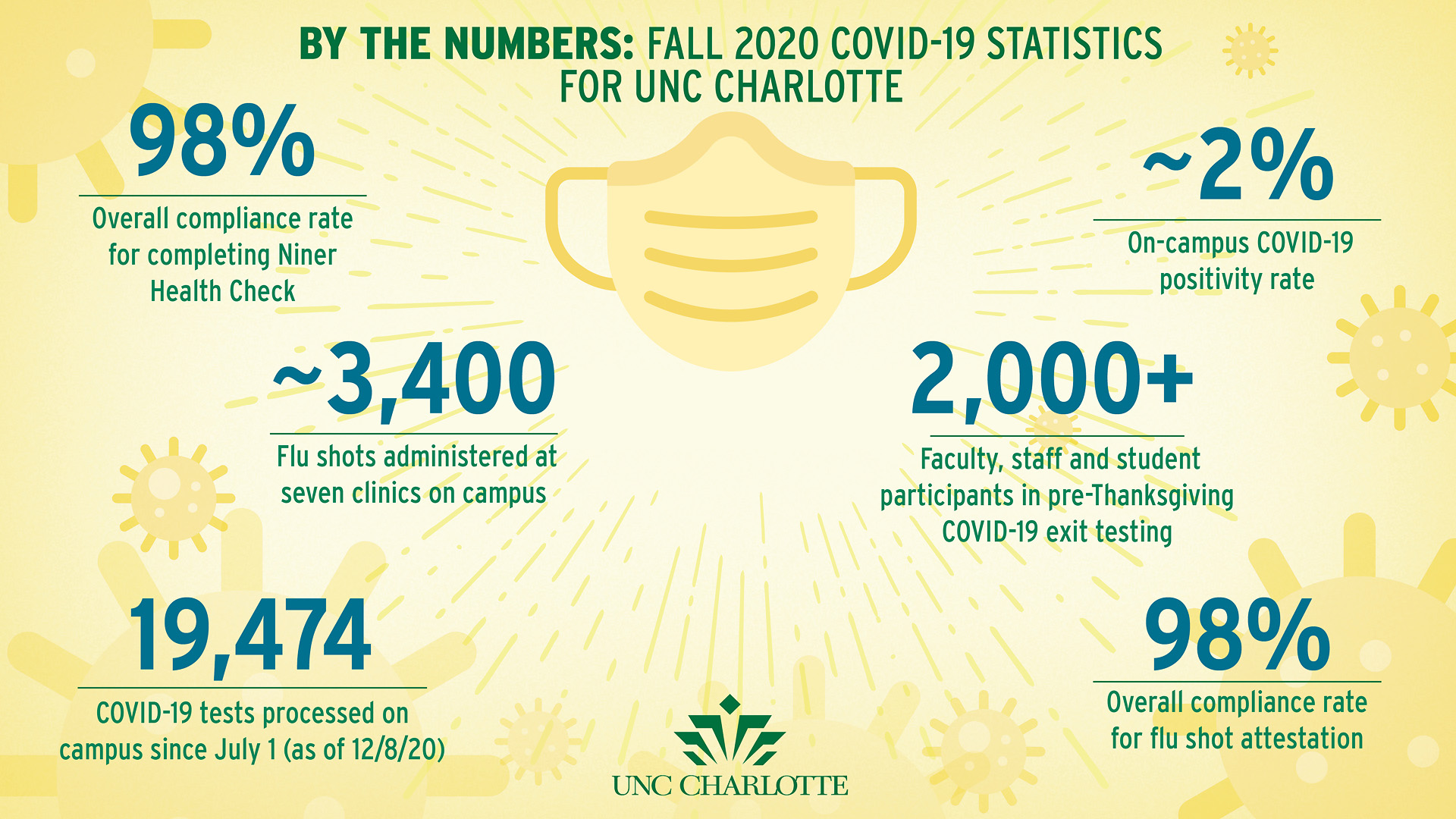
Sampling and testing wastewater from the sewer lines leading to UNC Charlotte’s residence halls are by no means glamorous processes, but they have been vital to the multi-department, interdisciplinary — and largely successful — effort to control the presence and spread of COVID-19 this fall on UNC Charlotte’s campus.
“Most impressive about this probable once-in-a-lifetime endeavor is that it was developed and is being managed entirely by UNC Charlotte faculty, staff and students,” said Rick Tankersley, vice chancellor for Research and Economic Development. “Everyone has rallied—during a crisis that has no roadmap—to lend their expertise and do what’s best for the entire campus community.”
Planning started last summer. Starting the semester online and delaying a limited student move-in until late September allowed the University to gain a few extra weeks to implement, in collaboration with the Mecklenburg County Health Department, a plan of action that was coordinated predominantly by the University’s Office of Safety and Security.
“We knew that to avoid a major outbreak of COVID-19, a robust and integrated clinical and administrative effort would be required,” said Robert Jones, UNC Charlotte’s medical director.
Below are elements of UNC Charlotte’s COVID-19 mitigation plan:
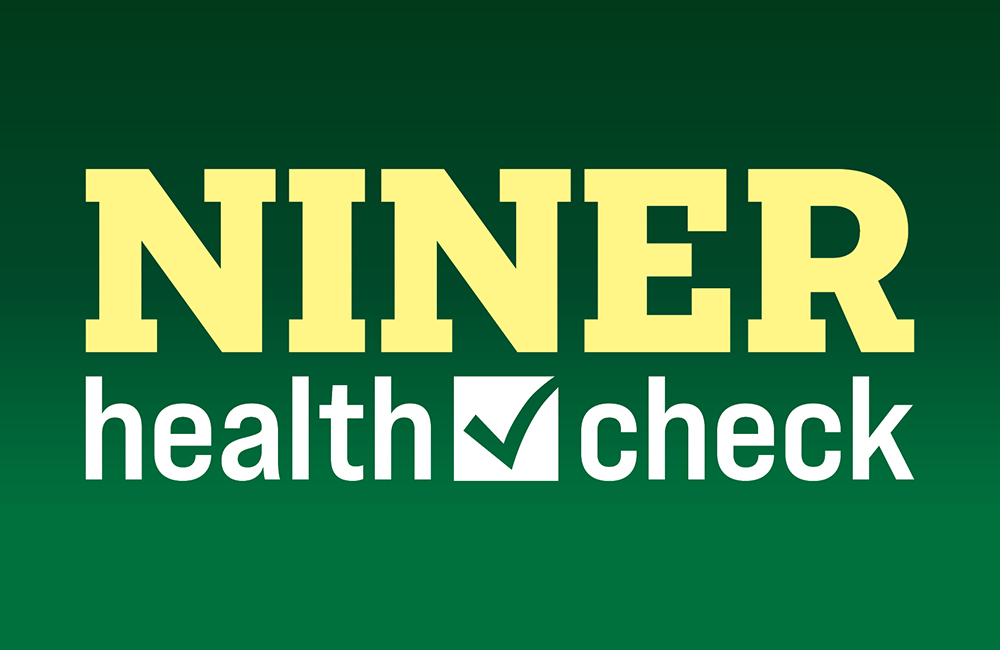
Niner Health Check and Contact Tracing
“With an overall 98% compliance rate regarding the survey, we can be confident that Niner Health Check is making a difference on UNC Charlotte’s campuses.”
Patrick Versace, assistant vice chancellor for Enterprise Application
- Through a daily message to complete Niner Health Check—a survey tool developed by UNC Charlotte’s Office of OneIT—students, faculty and staff indicate whether since the previous day they have been tested for, diagnosed with or have begun to experience symptoms of COVID-19, or had contact with a diagnosed individual. Depending on the answers, respondents are instructed whether or not to come to campus, to be tested for COVID-19 or monitor symptoms from home.
- Those who respond affirmatively to those questions are instructed to begin quarantine or isolation. Resident students in this category move to designated spaces on campus where their health needs are addressed and meals delivered.
A team of University-based contact tracers, specially trained master’s and doctoral students from the public health sciences program, begin the process of determining who had been in close proximity to the infected person and communicate with them to determine if testing or quarantine is appropriate.
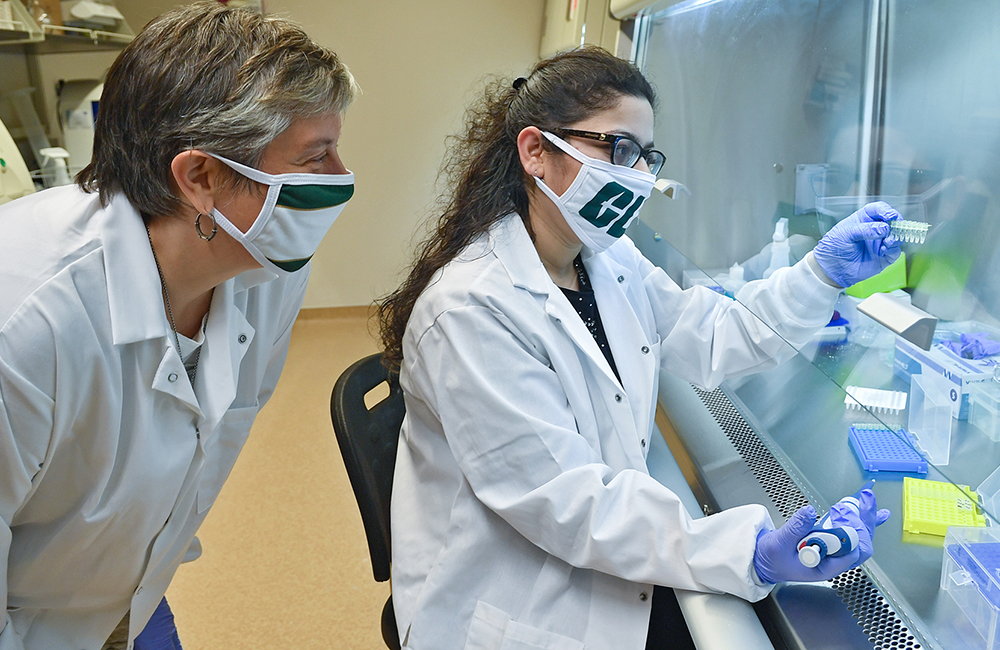
COVID-19 Test Clinic and Processing Lab
“There was a University-wide willingness to create a COVID-19 test processing lab to provide fast, accurate and timely results, especially with the supply chain challenges that hospitals and testing facilities across the country have experienced.”
Angelica Martins, director, Research and Economic Development and director of the COVID-19 Testing Center
- Medical personnel from the Student Health Center (SHC) worked much of the fall semester administering COVID-19 tests to faculty, staff and students instructed to get them based on Niner Health Check results. They also regularly test several 49ers teams.
- Tests are transported to a lab in Cameron Hall that has federal CLIA (Clinical Laboratory Improvement Amendments) certification, meaning it can process human samples. It has the capacity to run up to several hundred tests per day.
The lab team, in collaboration with OneIT, installed software programs designed to support clinical and laboratory workflow, laboratory outreach, point-of-care testing, data analytics and HIPAA security.
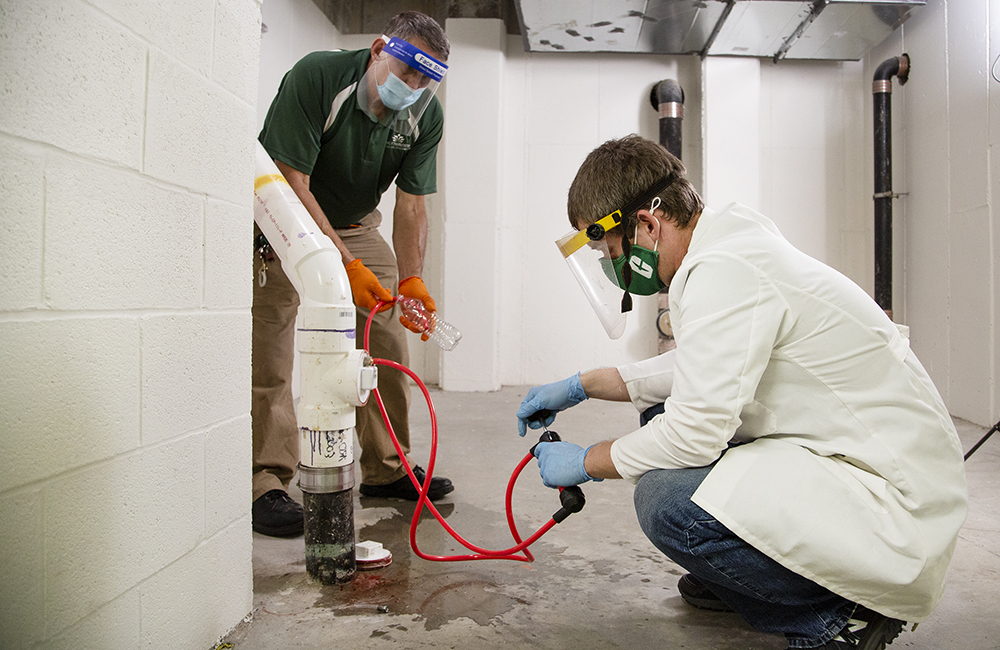
Wastewater Sampling and Testing
“Working closely with Facilities Management, we are able to pinpoint the presence of COVID-19 in a particular building, which can expedite the process of identifying infected individuals.”
Cynthia Gibas, bioinformatics researcher, who is leading the project with environmental engineer Mariya Munir
- UNC Charlotte is one of several institutions nationwide to invest in campus-based wastewater testing—a coronavirus early-warning system—which involves extracting samples from the sewer lines. Twenty-eight campus locations, primarily residence halls, are tested several times weekly, either manually or by autosampler.
This multi-college undertaking, which meets guidelines set by the Centers for Disease Control and Prevention’s National Wastewater Surveillance Program, includes expertise provided by faculty and postdoctoral researchers from the Department of Bioinformatics and Genomics, the Department Civil and Environmental Engineering, the Department of Geography and Earth Sciences, the Department of Computer Science and the Department of Public Health Sciences.
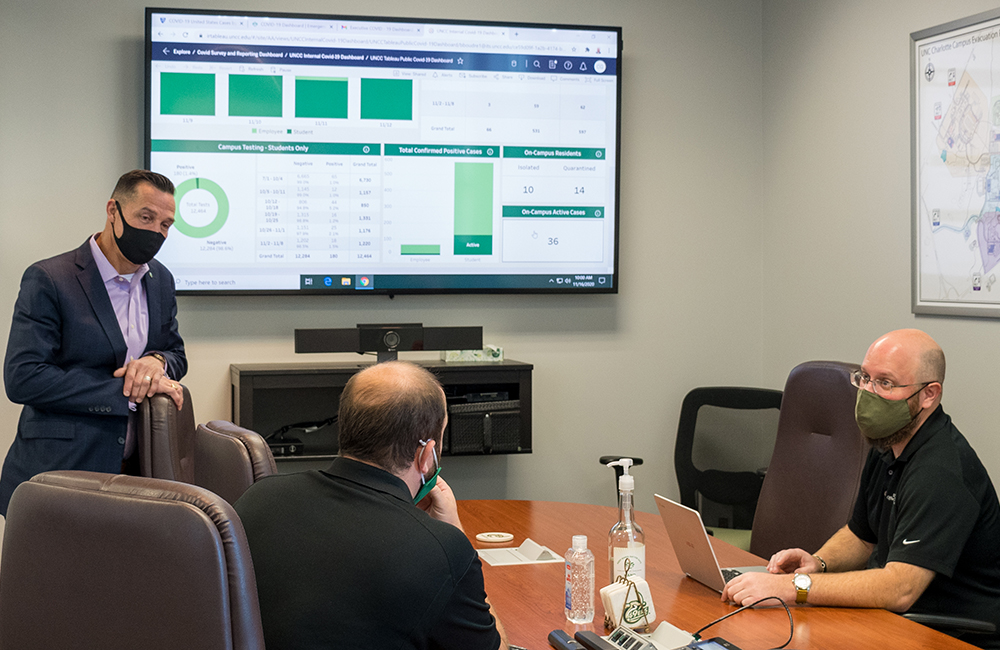
An up-to-the-minute COVID-19 Dashboard
“We’re committed to keeping the public informed about new cases reported daily and the number of active cases at any given time.”
Chris Gonyar ‘05, ‘07 MPA, director of Emergency Management
- An online dashboard designed by the Office of Emergency Management and the Office of OneIT provides information to the wider community about UNC Charlotte’s COVID-19 status. Updated daily with data provided by multiple sources (with the exception of on-campus testing statistics, which occurs weekly), the dashboard offers a timely illustration of health trends on campus.
Complete Information about the University’s COVID-19 related campus safety efforts; academic and administrative protocols; communications campaign, The New Norm; and more can be found on Niner Nation Cares.
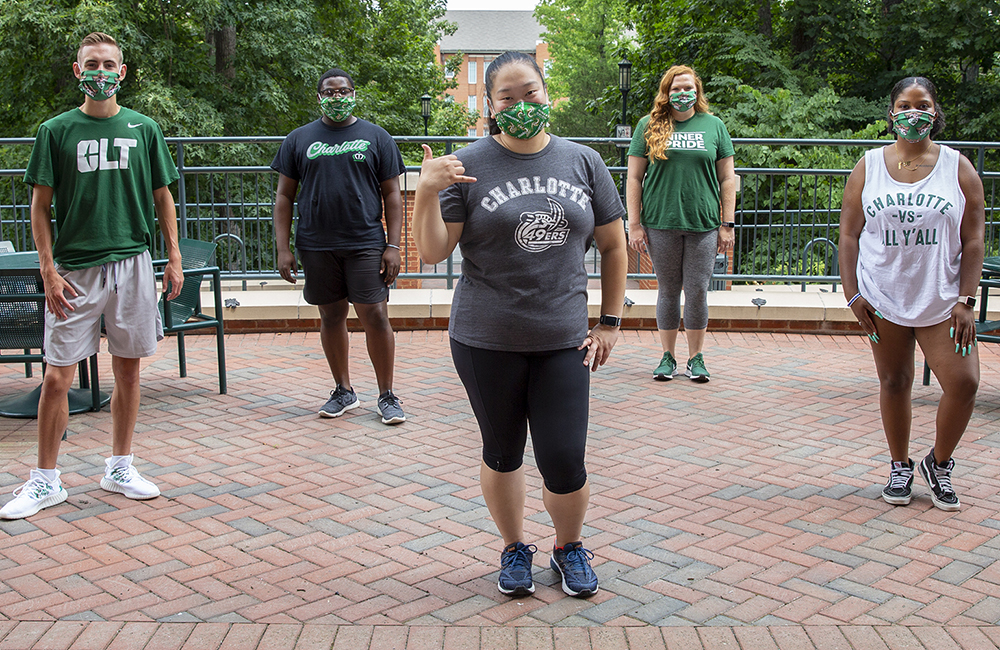
On the safe side: additional strategies
“While faculty and staff have done a tremendous job of creating systems that are contributing to a successful fall semester in terms of controlling COVID-19 on campus, the majority of the students are doing their part to keep themselves and other Niners as safe as possible. We anticipate a similar level of shared understanding and cooperation for the remainder of the 2020-21 academic year.”
Rick Tankersley, vice chancellor for Research & Economic Development
- At various times this fall, the University initiated surge testing and surveillance testing, additional strategies designed to preempt outbreaks. Their purpose is to sample the campus community to identify possible asymptomatic cases and to monitor for increasing or decreasing prevalence of the virus. Surge testing involves testing everyone in a determined environment, such as in a residence hall or on a sports team, whereas surveillance testing is random.